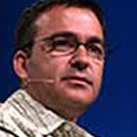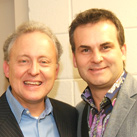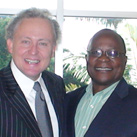When God Says It’s Enough: Acts Series #24

 When we entered Acts chapter 12, we saw that James was dead, Peter was in prison, and the church hiding in prayer. When we leave Acts chapter 12, we witness Peter’s angelic freedom from jail, the church amazed, King Herod dead, and the Gospel multiplying. This is a phenomenal chapter. Doctor Luke tells the story of persecution, prayer, and power: from tragedy, transition and triumph.
When we entered Acts chapter 12, we saw that James was dead, Peter was in prison, and the church hiding in prayer. When we leave Acts chapter 12, we witness Peter’s angelic freedom from jail, the church amazed, King Herod dead, and the Gospel multiplying. This is a phenomenal chapter. Doctor Luke tells the story of persecution, prayer, and power: from tragedy, transition and triumph.
When King Herold learned that Peter had escaped, his indignation was felt through all of his guards. He had to respect life. If you were of no use to him, he simply took your life. In Acts 12:18-19, we read about the excitement of the guards (Acts 12:18). Luke says, “No, as soon as it was day, there was no small stir among the soldiers.” The soldiers were in serious trouble. They could not figure out how Peter escaped and where he had gone.
On the heels of the excitement of the guards, comes the examination of the guards (Acts 19:19a). We read, “And when Herod had sought for him, and found him not, he examined the guards.” In other words, Herod interrogated them. He believed that this was an inside job. A man simply does not vanish from a maximum security ward into thin air and leave no trace of his departure. Herod’s plans to ingratiate himself with the Jews at Peter’s expense had exploded in his face, and his fury knew no bounds.
As Herod’s indignation continued to rise, we learn of the execution of the guards. Luke writes, “and commanded that they should be put to death. And he went down from Judea to Caesarea, and there abode” (Acts 12:19b). Herod was furious enough at having lost face with the Jews to order the execution of those he deemed responsible for Peter’s escape. Yet, when a person walks the path of revenge, he or she usually ends meeting his/her match. After having his guards killed, he turned his back on Jerusalem, Judea and the Jews, and went to the city Caesarea. Luke states, “and there abode.” In other words, “to rub away.” In his mind, he was done placating the Jews and moved on.
We are going to learn that there comes a time when God says, “You can go no further. It is enough.” People all over the world believe they can get away with their sin. Yet, eventually, God says, “It is enough.” For many years, King Herod has been hell bent against the Church and to obey the basic principles of respect instead of revenge. There is a road that looks right to a person but the end of it is death.
I. We Need to Remember The Untold Sin of The World
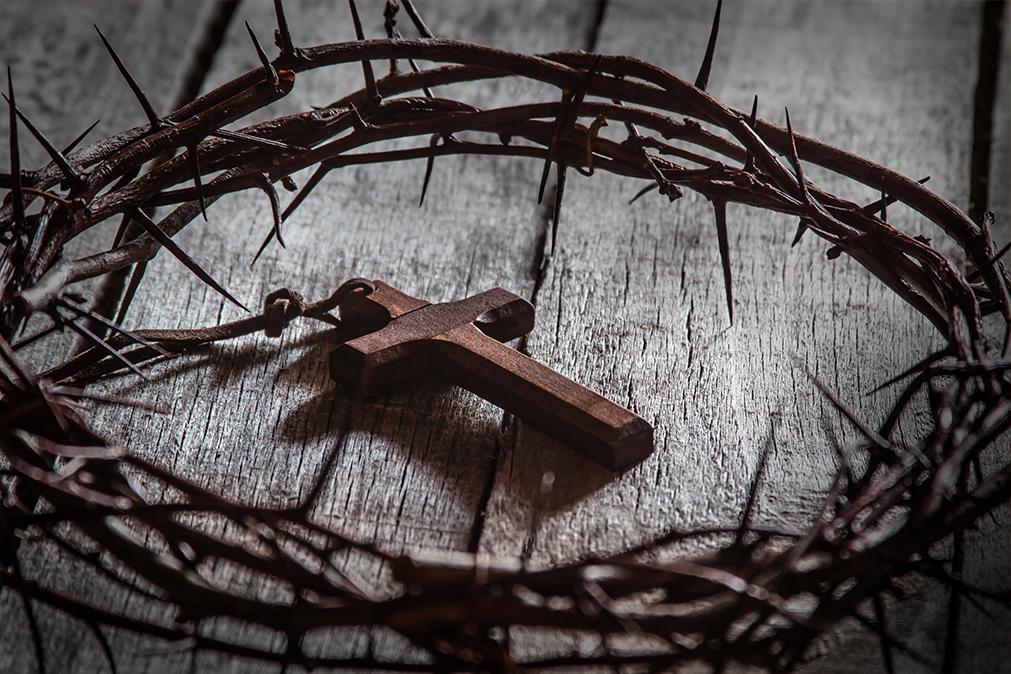 We are about to read some of the most sobering verses in the Bible. In Acts 12:20-23, we read, “Now Herod was angry with the people of Tyre and Sidon, and they came to him with one accord, and having persuaded Blastus, the king’s chamberlain, they asked for peace, because their country depended on the king’s country for food. On an appointed day, Herod put on his royal robes, took his seat upon the throne, and delivered an oration to them. And the people were shouting, ‘The voice of a god, and not of a man!’ Immediately an angel of the Lord struck him down, because he did not give God the glory, and he was eaten by worms and breathed his last.”
We are about to read some of the most sobering verses in the Bible. In Acts 12:20-23, we read, “Now Herod was angry with the people of Tyre and Sidon, and they came to him with one accord, and having persuaded Blastus, the king’s chamberlain, they asked for peace, because their country depended on the king’s country for food. On an appointed day, Herod put on his royal robes, took his seat upon the throne, and delivered an oration to them. And the people were shouting, ‘The voice of a god, and not of a man!’ Immediately an angel of the Lord struck him down, because he did not give God the glory, and he was eaten by worms and breathed his last.”
What was the sin? God does not tolerate stolen glory, when the glory stolen is an attempt to rob Him of the glory due His Name. Herod was a bad man who overstepped the boundary between mankind’s deserved humility and praise that should be reserved solely for the Living God. There is a lesson for each of us in the events surrounding a day when a king accepted praise and made himself guilty of stolen glory.
“On an appointed day, Herod put on his royal robes, took his seat upon the throne, and delivered an oration to them. And the people were shouting, ‘The voice of a god, and not of a man!’” Necessity often imposes humility upon people. Tyre and Sidon had in some way angered Herod; however, they sought peace “because their country depended on the kings country for food.”
Herod was a tyrant; he was noted for his cruel, vicious, and avaricious nature. Shortly before the events in the pericope before us today, Herod had initiated a persecution against the faithful in Jerusalem. Go back to the opening verses of this chapter where we read, “Herod the king laid violent hands on some who belonged to the church. He killed James the brother of John with the sword, and when he saw that it pleased the Jews, he proceeded to arrest Peter also. This was during the days of Unleavened Bread. And when he had seized him, he put him in prison, delivering him over to four squads of soldiers to guard him, intending after the Passover to bring him out to the people. So, Peter was kept in prison, but earnest prayer for him was made to God by the church” (Acts 12:1-5).
Herod ordered James, the brother of John, to be executed. James was likely beheaded. He had been educated in Rome, and in time became a confidant of Caligula, and later with Claudius. After he had ordered the execution of James, Herod realized that his despicable action pleased his Jewish subjects, so he ordered Peter jailed. Herod’s intent was to execute Peter. However, not wanting to offend Jewish sensibilities, he was compelled to wait until after Passover. After all, one could not desecrate a holy day! What a hypocrite!
Sometime after this, Herod had a spat with the Phoenician cities of Tyre and Sidon. Though it had been destroyed by Alexander, Tyre had been rebuilt, regaining its position as a center for international trade. Likewise, Sidon was a prosperous city noted as a commercial center. However, the cities were dependent upon the Judean territories for grains. Angered by these independent city-states for an undisclosed reason, Herod withheld trade; and since the cities had allowed themselves to become dependent upon Judean grains, Herod’s economic embargo worked. The republics sued for a trade agreement, tantamount to an economic nonaggression pact. While Tyre and Sidon were sufficiently wealthy to pay the increased prices for grain from other venues, it was the course of wisdom to find accommodation with Herod.
The pompous ruler had won his economic battle. In order to implement the treaty, Herod was invited to deliver a speech before the assembled dignitaries of the two cities. Reading the text, one can only wonder why Luke is so careful to include such a minor detail as the fact that Herod donned his royal robes. A contemporary source reveals the reason for this curious inclusion of such a minor detail:
The date was August 1, 44 A.D., five months after Peter’s escape from prison. Josephus explains that Herod donned a robe woven with threads of silver. Coming into the amphitheater early in the morning, he stood so that the rising sun would reflect off his body. The spectacle was overpowering for the audience. However, leaving nothing to chance, Herod had planted sycophants throughout the audience. When he appeared, they began to shout that he was a god. Josephus affirms that they were shouting out that he was a god, adding that they also shouted, “Be thou merciful to us; for although we have hitherto reverenced thee only as a man, yet shall we henceforth own thee as superior to mortal nature.” This serves as independent confirmation of Doctor Luke’s observation that the crowd was shouting, “The voice of a god, and not of a man (Acts 12:22).
What was Herod’s sin? The answer depends upon whether we mean in addition to murder, theft and assault against the faithful; Herod was guilty of all these sins—and much more. Nevertheless, the final sin for which God said, “Enough!” was his failure to give God the glory due His Holy Name. The New American Standard Bible states that Herod “did not give God the glory.” Greek text can be translated Luke’s words as, “he had usurped the honor due to God.”
II. We Need To Recall The Unannounced Sentence by God
 What was the final straw so far as God was concerned? Herod was judged immediately. Josephus notes, “Upon this, the king did neither rebuke them, nor reject their impious flattery.” What is fascinating about Josephus’ observation is that he relates that an owl sat on a rope over Herod’s head, noting that Herod “understood that this bird was the messenger of ill tidings, as it had once been the messenger of good tidings to him; and fell into the deepest sorrow.” “Angel” is often translated “messenger,” indicating a common understanding of delivery of a divine message. God directs Doctor Luke to write, “Immediately, an angel of the Lord struck [Herod] down, because he did not give God the glory” (Acts 12:23a).
What was the final straw so far as God was concerned? Herod was judged immediately. Josephus notes, “Upon this, the king did neither rebuke them, nor reject their impious flattery.” What is fascinating about Josephus’ observation is that he relates that an owl sat on a rope over Herod’s head, noting that Herod “understood that this bird was the messenger of ill tidings, as it had once been the messenger of good tidings to him; and fell into the deepest sorrow.” “Angel” is often translated “messenger,” indicating a common understanding of delivery of a divine message. God directs Doctor Luke to write, “Immediately, an angel of the Lord struck [Herod] down, because he did not give God the glory” (Acts 12:23a).
“Immediately an angel of the Lord struck him down, because he did not give God the glory, and he was eaten by worms and breathed his last” (Acts 12:23). Despite speaking of divine judgement, it is necessary that we should think about judgement in a personal manner. Paul was hauled before Felix and Drusilla where he was called to give his apology for the Faith. I might have imagined that the Apostle would speak of peace, of joy, of the goodness of the Lord. Instead, I read that Paul “reasoned about righteousness and self-control and the coming judgement” (Acts 24:25). If we are ever to make an impact on the hardened hearts of mankind, it will be imperative for us to warn the lost of eternal death that awaits the wicked. People do not simply and automatically go to paradise at death. Despite the popular thought that everyone goes to Heaven, no such comfort is afforded in Scripture.
God’s response to arrogance displayed by kings and national leaders, self-appointed or otherwise, is swift, ruthless and pitiless. His judgement of self-exaltation is an ugly desecration. Herod becomes food for worms. Hitler perishes in a bunker, dead by his own hand. Mussolini is seized by his subjects and hung upside down. Trujillo is ambushed, gunned down by members of his own armed forces. Saddam Hussein is dragged from a spider hole where he attempted to hide and is shortly hanged. Gaddafi is dragged, wounded, and bloodied from a storm sewer where he was hiding before he is killed by a bullet to the head. Tyrants have no future; and yet, they continue to exalt themselves.
I am quite aware that people often become irritated when we preachers speak of death. “Why don’t you quit talking about dying,” I’ve had some complain. My answer to such complaints has always been, “I’ll quit talking about dying when people quit dying.” I understand that we have migrated from funerals that focus on the great issues that ultimately face each one in order to remind ourselves how good everyone is. Reality intrudes on our idyllic reveries to compel us to prepare for what must surely come.
Perhaps one could console himself or herself if death was all there is. However, it is this knowledge that we must give an answer for what we have done that terrifies. Indeed, the Apostle Paul is correct when he warned, “[God] has fixed a day on which he will judge the world in righteousness by a man whom he has appointed; and of this he has given assurance to all by raising him from the dead” (Acts 17:31).
The text before us tells of Herod, who because he was a wicked man must face judgement before the Risen Christ. There, before the Great White Throne, he shall give answer for his failure to believe the message of life. Nevertheless, in the text, he is judged immediately. There are instances when God sends an angel to hold people to account. How awful when God holds an individual to account because of the wickedness that individual has performed. Judgement in this life is never pretty.
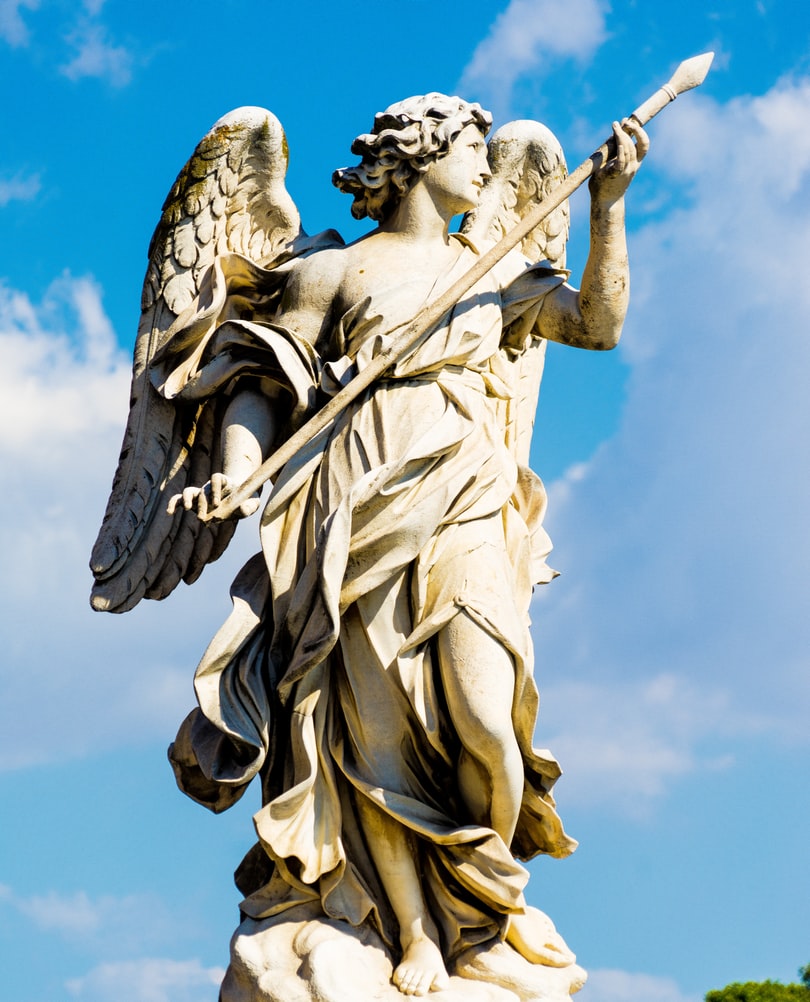 God sent an angel to judge Herod; and how frightful was that judgement. The text asserts that he was “eaten by worms.” The Word of God does not require affirmation from any other source; however, it is amazing how the Word is so often declared accurate when contemporary histories are read. An appeal to one such contemporary report provided by Flavius Josephus affords additional insight into the death of Herod. Josephus writes, “The distemper seized upon [Herod’s] whole body, and greatly disordered all its parts with various symptoms; for there was a gentle fever upon him, and an intolerable itching over all the surface of his body, and continual pains in his colon, and dropsical tumors about his feet and an inflammation of the abdomen,—and a petrification of his privy member, that produced worms. Besides which he had a difficulty of breathing upon him, and could not breathe but when he sat upright, and had a convulsion of all his members.”
God sent an angel to judge Herod; and how frightful was that judgement. The text asserts that he was “eaten by worms.” The Word of God does not require affirmation from any other source; however, it is amazing how the Word is so often declared accurate when contemporary histories are read. An appeal to one such contemporary report provided by Flavius Josephus affords additional insight into the death of Herod. Josephus writes, “The distemper seized upon [Herod’s] whole body, and greatly disordered all its parts with various symptoms; for there was a gentle fever upon him, and an intolerable itching over all the surface of his body, and continual pains in his colon, and dropsical tumors about his feet and an inflammation of the abdomen,—and a petrification of his privy member, that produced worms. Besides which he had a difficulty of breathing upon him, and could not breathe but when he sat upright, and had a convulsion of all his members.”
I do not want you to imagine that divine judgement is always so instantaneous, so drastic; nevertheless, judgement is sure. Luke employs as a motif, swift judgement of those sins that seek to halt the advance of the Faith. Judas betrays his Master—immediately his conscience smites him and he hangs himself, falling headlong to the bottom of a ravine where his body bursts open. Ananias and Sapphira lie to the Holy Spirit—immediately they fall down dead. Elymas, a false prophet, attempts to turn the proconsul of Cyprus from faith in the Son of God—immediately he is struck blind.
If we do not see such divine defense exerted in our behalf today, is it because we are doing so little to advance His cause? God spoke to a witness questioning his service, that God spoke, saying, “Do not be afraid, but go on speaking and do not be silent, for I am with you, and no one will attack you to harm you” (Acts 18:9, 10). He is the same God who reigns over His people to this day. If you wonder if God is gracious, I remind you that the God who spoke to the Apostle Paul in the middle of a hurricane, saying, “Do not be afraid…; you must stand before Caesar. And behold, God has granted you all those who sail with you” (Acts 27:24); I am confident that the same God is with His own to this day when they are in His service.
All of us are given the choice of freewill. Look at the end result of Saul (later to be Paul) and Herod. I strongly believe that Saul was about to cross the line when God would say, “This is enough.” He had been persecuting the Church, had Stephen killed and was on the Damascus Road to go and do more harm, when God struck him down with blindness. I believe if Saul had not repented but kept moving forward, his life would have come to a close. He heard the Gospel, repented, and was saved. King Herod, however, had heard about Christ and turned his heart away to the point that he sought the praise of the people instead of encouraging them to praise the Lord. He crossed the line and his life was taken from him.
We don’t know if the same angel who helped to free Peter, is the one who smote Herod and he died. Nevertheless, there was a mighty angel, who saw everything that was taking place. There are angels in the unseen world, who carry out the orders of God’s throne. Just as Satan has his angelic princes, unseen powers, rulers of this world’s darkness, and wicked spirits in high places, so God has His own angelic administrators who rush to do His bidding.
Think with me about what this angel permitted Herod to do. He was allowed to place his order with his tailors for the dazzling suit of silver. He was allowed to admire himself in the mirror and to congratulate himself on what dashing royal figure he was. He was allowed to parade up and down his bedroom before his valet, calling for an adjustment here, a minor alteration there. He was allowed to wear that robe to the theater. He was allowed to sit upon his throne in conscious pride. He was allowed to stand so that the rays of “God’s sun might flash upon the silver threads, throwing out an aura of their one.” He was allowed to open his mouth to speak and hear the multitude cry, “It is the voice of a god, and not of a man.” Then suddenly, the angel smote Herod. He had gone too far. He had exhausted the patience of God. God said, “This is enough!”
When I think about Christianity in my nation, it is tolerated but no longer celebrated. I watch how the media and magistrates malign the Believers in Christ today. In recent years, the persecution of the Church and the push against the Gospel have increased. I have often wondered how many of these antichrist leaders will eventually be smote by God Himself.
III. We Need To Realize The Ultimate Success Of The Church
 We read, “But the word of God increased and multiplied” (Acts 12:24). While Herod’s body became a breeding ground for worms, it was a different story for the faithful. Luke’s assessment concerning the advance of the Faith is almost laconic. He writes, “But the word of God increased and multiplied.” The opposition to God’s workers was removed. Now, the faithful are enabled to move forward.
We read, “But the word of God increased and multiplied” (Acts 12:24). While Herod’s body became a breeding ground for worms, it was a different story for the faithful. Luke’s assessment concerning the advance of the Faith is almost laconic. He writes, “But the word of God increased and multiplied.” The opposition to God’s workers was removed. Now, the faithful are enabled to move forward.
Because the Christian Faith was growing, because the disciples were testifying to the grace of the Risen Savior, because the faithful were telling others of the life that is found in Christ the Lord, God defended His people. What is witnessed is nothing less than practical evidence of Jesus’ promise given in what we identify as “The Great Commission.” Jesus commanded, “All authority in heaven and on earth has been given to me. Go therefore and make disciples of all nations, baptizing them in the name of the Father and of the Son and of the Holy Spirit, teaching them to observe all that I have commanded you. And behold, I am with you always, to the end of the age” (Matthew 28:18-20). Our problem is not that the risen Savior is not with us; our problem is that we are content to stand on the premises rather than standing on the promises. Jesus commands us to “Go!” and we hide within the sacred precincts of the church.
There is a truth here that must not be neglected. The first churches faced unimaginable persecution. The religious and civic leadership were opposed to their message. They were slandered, jailed, beaten and harassed continually. Yet, they could not be quiet. Beaten, ridiculed and at times put to death: yet, these believers would declare, “There is salvation in no one else, for there is no other Name under heaven given among men by which we must be saved” (Acts 4:12). Threatened again, those same men will boldly declare, “Whether it is right in the sight of God to listen to you rather than God, you must judge, for we cannot but speak of what we have seen and heard” (Acts 4:19, 20). Perhaps this is what is lacking within modern church life—we have nothing that we have seen or heard! Consequently, we are compelled to be silent in the face of opposition and intimidated by the threats of a Christ-denying world. Think about it.
When those early saints were beaten, “they went to their friends and reported what the (enemies) had said to them” (Acts 4:23). Then, together, the disciples “lifted their voices to God” in prayer. They asked Him to supply them with boldness and with opportunity to speak. When at last, the inevitable occurred and their enemies began to kill some of the disciples, the faithful were scattered, fleeing for their lives; however, “those who were scattered went about preaching the Word” (Acts 9:4). The greater the persecution, the more widely the message of life spread. The more widely the message was spread, the greater the number of churches, for “the hand of the Lord was with them” (Acts 11:21).
According to historical tradition, many of the earliest disciples suffered terrible fates. Matthew suffered martyrdom when he was slain in Ethiopia. Mark died at Alexandria, after being dragged through the streets. Luke was hanged on an olive tree in Greece. John was put in boiling oil and afterward banished to Patmos. Peter was reputed to have been crucified at Rome with his head downward. James the Lesser was thrown from a pinnacle of the Temple before being beaten to death. Bartholomew was flayed alive. Andrew was bound to a cross, from whence he preached to his persecutors until he died. Jude was shot with arrows until he died. Matthias was first stoned and then beheaded. Barnabas of the Gentiles was stoned to death at Salonica. Paul, after prolonged imprisonment, was beheaded in Rome. Opposition and persecution did not hinder the advance of the Faith, the Faith was nourished and strengthened!
The Holy Spirit sets down the progress report in evident contract with the ignominious death of Herod. The worms are set in contract with the Lord. Both are God’s instruments. Herod might want to destroy the Church but the Word of God, inspired, infallible, inerrant, invincible, marched gloriously on.
Back To Blog
